2018 Toyota Camry Tires, Repair & Service
Get Started
Complete Auto Care for Your 2018 Toyota Camry
-
TIRES FOR YOUR 2018 Toyota Camry View Tire Info GET TIRE PRICING
-
REPAIR FOR YOUR 2018 Toyota Camry View Repair Info SCHEDULE REPAIR
-
MAINTENANCE FOR YOUR 2018 Toyota Camry View Maintenance Info SCHEDULE MAINTENANCE
-
OFFERS FOR YOUR 2018 Toyota Camry Limited Time Tire Offers VIEW ALL COUPONS
2018 Toyota Camry Tires
Recommended Tires | Tire Information
2018 Toyota Camry Tires Sizes, Speed Ratings, and Inflation
Not sure about your 2018 Toyota Camry tire size? Use the following chart to find information on tire size, speed rating, and inflation.
| Trim Level | Speed Rating | Inflation in PSI F/R | Tire Size |
|---|---|---|---|
| 2018 Toyota Camry Hybrid LE* | H | 35 PSI/35 PSI | 205/65R16 |
| 2018 Toyota Camry Hybrid LE* | H | 35 PSI/35 PSI | 205/65R16 |
| 2018 Toyota Camry Hybrid LE* | H | 35 PSI/35 PSI | 205/65R16 |
| 2018 Toyota Camry Hybrid LE* | H | 35 PSI/35 PSI | 205/65R16 |
| 2018 Toyota Camry Hybrid LE* | H | 35 PSI/35 PSI | 205/65R16 |
| 2018 Toyota Camry Hybrid LE* | H | 35 PSI/35 PSI | 205/65R16 |
| 2018 Toyota Camry XLE* | V | 35 PSI/35 PSI | 235/45R18 |
| 2018 Toyota Camry XLE* | V | 35 PSI/35 PSI | 235/45R18 |
| 2018 Toyota Camry XLE* | V | 35 PSI/35 PSI | 235/45R18 |
| 2018 Toyota Camry XLE* | V | 35 PSI/35 PSI | 235/45R18 |
| 2018 Toyota Camry XLE* | V | 35 PSI/35 PSI | 235/45R18 |
| 2018 Toyota Camry XLE* | V | 35 PSI/35 PSI | 235/45R18 |
| 2018 Toyota Camry LE* | V | 35 PSI/35 PSI | 215/55R17 |
| 2018 Toyota Camry LE* | V | 35 PSI/35 PSI | 215/55R17 |
| 2018 Toyota Camry LE* | V | 35 PSI/35 PSI | 215/55R17 |
| 2018 Toyota Camry LE* | V | 35 PSI/35 PSI | 215/55R17 |
| 2018 Toyota Camry LE* | V | 35 PSI/35 PSI | 215/55R17 |
| 2018 Toyota Camry LE* | V | 35 PSI/35 PSI | 215/55R17 |
| 2018 Toyota Camry Hybrid SE* | V | 35 PSI/35 PSI | 235/45R18 |
| 2018 Toyota Camry Hybrid SE* | V | 35 PSI/35 PSI | 235/45R18 |
| 2018 Toyota Camry Hybrid SE* | V | 35 PSI/35 PSI | 235/45R18 |
| 2018 Toyota Camry Hybrid SE* | V | 35 PSI/35 PSI | 235/45R18 |
| 2018 Toyota Camry Hybrid SE* | V | 35 PSI/35 PSI | 235/45R18 |
| 2018 Toyota Camry Hybrid SE* | V | 35 PSI/35 PSI | 235/45R18 |
| 2018 Toyota Camry Hybrid XLE* | V | 35 PSI/35 PSI | 235/45R18 |
| 2018 Toyota Camry Hybrid XLE* | V | 35 PSI/35 PSI | 235/45R18 |
| 2018 Toyota Camry Hybrid XLE* | V | 35 PSI/35 PSI | 235/45R18 |
| 2018 Toyota Camry Hybrid XLE* | V | 35 PSI/35 PSI | 235/45R18 |
| 2018 Toyota Camry Hybrid XLE* | V | 35 PSI/35 PSI | 235/45R18 |
| 2018 Toyota Camry Hybrid XLE* | V | 35 PSI/35 PSI | 235/45R18 |
| 2018 Toyota Camry XSE* | V | 35 PSI/35 PSI | 235/40R19 |
| 2018 Toyota Camry XSE* | V | 35 PSI/35 PSI | 235/40R19 |
| 2018 Toyota Camry XSE* | V | 35 PSI/35 PSI | 235/40R19 |
| 2018 Toyota Camry XSE* | V | 35 PSI/35 PSI | 235/40R19 |
| 2018 Toyota Camry XSE* | V | 35 PSI/35 PSI | 235/40R19 |
| 2018 Toyota Camry XSE* | V | 35 PSI/35 PSI | 235/40R19 |
| 2018 Toyota Camry L* | H | 35 PSI/35 PSI | 205/65R16 |
| 2018 Toyota Camry L* | H | 35 PSI/35 PSI | 205/65R16 |
| 2018 Toyota Camry L* | H | 35 PSI/35 PSI | 205/65R16 |
| 2018 Toyota Camry L* | H | 35 PSI/35 PSI | 205/65R16 |
| 2018 Toyota Camry L* | H | 35 PSI/35 PSI | 205/65R16 |
| 2018 Toyota Camry L* | H | 35 PSI/35 PSI | 205/65R16 |
| 2018 Toyota Camry SE* | V | 35 PSI/35 PSI | 235/45R18 |
| 2018 Toyota Camry SE* | V | 35 PSI/35 PSI | 235/45R18 |
| 2018 Toyota Camry SE* | V | 35 PSI/35 PSI | 235/45R18 |
| 2018 Toyota Camry SE* | V | 35 PSI/35 PSI | 235/45R18 |
| 2018 Toyota Camry SE* | V | 35 PSI/35 PSI | 235/45R18 |
| 2018 Toyota Camry SE* | V | 35 PSI/35 PSI | 235/45R18 |
|
2018 Toyota Camry Hybrid LE* Speed Rating: H Inflation F/R: 35 PSI/35 PSI |
|
2018 Toyota Camry Hybrid LE* Speed Rating: H Inflation F/R: 35 PSI/35 PSI |
|
2018 Toyota Camry Hybrid LE* Speed Rating: H Inflation F/R: 35 PSI/35 PSI |
|
2018 Toyota Camry Hybrid LE* Speed Rating: H Inflation F/R: 35 PSI/35 PSI |
|
2018 Toyota Camry Hybrid LE* Speed Rating: H Inflation F/R: 35 PSI/35 PSI |
|
2018 Toyota Camry Hybrid LE* Speed Rating: H Inflation F/R: 35 PSI/35 PSI |
|
2018 Toyota Camry XLE* Speed Rating: V Inflation F/R: 35 PSI/35 PSI |
|
2018 Toyota Camry XLE* Speed Rating: V Inflation F/R: 35 PSI/35 PSI |
|
2018 Toyota Camry XLE* Speed Rating: V Inflation F/R: 35 PSI/35 PSI |
|
2018 Toyota Camry XLE* Speed Rating: V Inflation F/R: 35 PSI/35 PSI |
|
2018 Toyota Camry XLE* Speed Rating: V Inflation F/R: 35 PSI/35 PSI |
|
2018 Toyota Camry XLE* Speed Rating: V Inflation F/R: 35 PSI/35 PSI |
|
2018 Toyota Camry LE* Speed Rating: V Inflation F/R: 35 PSI/35 PSI |
|
2018 Toyota Camry LE* Speed Rating: V Inflation F/R: 35 PSI/35 PSI |
|
2018 Toyota Camry LE* Speed Rating: V Inflation F/R: 35 PSI/35 PSI |
|
2018 Toyota Camry LE* Speed Rating: V Inflation F/R: 35 PSI/35 PSI |
|
2018 Toyota Camry LE* Speed Rating: V Inflation F/R: 35 PSI/35 PSI |
|
2018 Toyota Camry LE* Speed Rating: V Inflation F/R: 35 PSI/35 PSI |
|
2018 Toyota Camry Hybrid SE* Speed Rating: V Inflation F/R: 35 PSI/35 PSI |
|
2018 Toyota Camry Hybrid SE* Speed Rating: V Inflation F/R: 35 PSI/35 PSI |
|
2018 Toyota Camry Hybrid SE* Speed Rating: V Inflation F/R: 35 PSI/35 PSI |
|
2018 Toyota Camry Hybrid SE* Speed Rating: V Inflation F/R: 35 PSI/35 PSI |
|
2018 Toyota Camry Hybrid SE* Speed Rating: V Inflation F/R: 35 PSI/35 PSI |
|
2018 Toyota Camry Hybrid SE* Speed Rating: V Inflation F/R: 35 PSI/35 PSI |
|
2018 Toyota Camry Hybrid XLE* Speed Rating: V Inflation F/R: 35 PSI/35 PSI |
|
2018 Toyota Camry Hybrid XLE* Speed Rating: V Inflation F/R: 35 PSI/35 PSI |
|
2018 Toyota Camry Hybrid XLE* Speed Rating: V Inflation F/R: 35 PSI/35 PSI |
|
2018 Toyota Camry Hybrid XLE* Speed Rating: V Inflation F/R: 35 PSI/35 PSI |
|
2018 Toyota Camry Hybrid XLE* Speed Rating: V Inflation F/R: 35 PSI/35 PSI |
|
2018 Toyota Camry Hybrid XLE* Speed Rating: V Inflation F/R: 35 PSI/35 PSI |
|
2018 Toyota Camry XSE* Speed Rating: V Inflation F/R: 35 PSI/35 PSI |
|
2018 Toyota Camry XSE* Speed Rating: V Inflation F/R: 35 PSI/35 PSI |
|
2018 Toyota Camry XSE* Speed Rating: V Inflation F/R: 35 PSI/35 PSI |
|
2018 Toyota Camry XSE* Speed Rating: V Inflation F/R: 35 PSI/35 PSI |
|
2018 Toyota Camry XSE* Speed Rating: V Inflation F/R: 35 PSI/35 PSI |
|
2018 Toyota Camry XSE* Speed Rating: V Inflation F/R: 35 PSI/35 PSI |
|
2018 Toyota Camry L* Speed Rating: H Inflation F/R: 35 PSI/35 PSI |
|
2018 Toyota Camry L* Speed Rating: H Inflation F/R: 35 PSI/35 PSI |
|
2018 Toyota Camry L* Speed Rating: H Inflation F/R: 35 PSI/35 PSI |
|
2018 Toyota Camry L* Speed Rating: H Inflation F/R: 35 PSI/35 PSI |
|
2018 Toyota Camry L* Speed Rating: H Inflation F/R: 35 PSI/35 PSI |
|
2018 Toyota Camry L* Speed Rating: H Inflation F/R: 35 PSI/35 PSI |
|
2018 Toyota Camry SE* Speed Rating: V Inflation F/R: 35 PSI/35 PSI |
|
2018 Toyota Camry SE* Speed Rating: V Inflation F/R: 35 PSI/35 PSI |
|
2018 Toyota Camry SE* Speed Rating: V Inflation F/R: 35 PSI/35 PSI |
|
2018 Toyota Camry SE* Speed Rating: V Inflation F/R: 35 PSI/35 PSI |
|
2018 Toyota Camry SE* Speed Rating: V Inflation F/R: 35 PSI/35 PSI |
|
2018 Toyota Camry SE* Speed Rating: V Inflation F/R: 35 PSI/35 PSI |
* Note: these models have different tire sizes depending on vehicle options.
Recommended Tires for Your 2018 Toyota Camry
What tires are best for a 2018 Toyota Camry? Check out the following tire brands and types.
 Ecopia EP422 Plus
Ecopia EP422 Plus
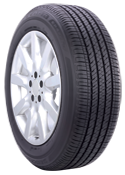
- Platinum Pact Limited Warranty
- All-Season
- Performance
 Potenza RE97AS
Potenza RE97AS
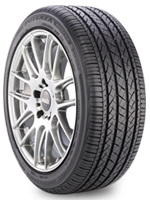
- Platinum Pact Limited Warranty
- All-Season
- Performance
 Potenza Sport
Potenza Sport
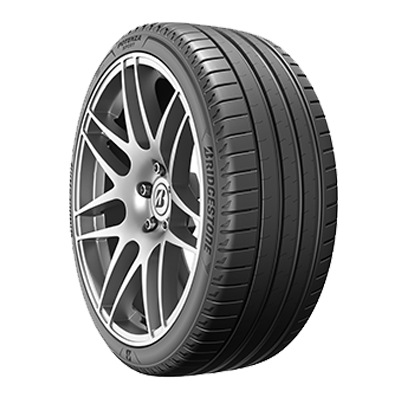
- Platinum Pact Limited Warranty
- Summer
- Performance
 Potenza Sport AS
Potenza Sport AS
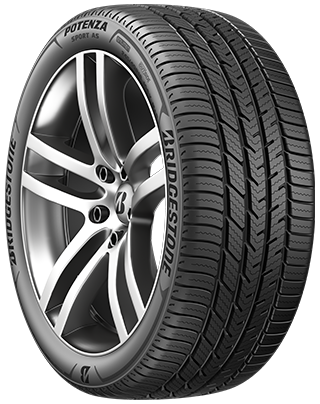
- Platinum Pact Limited Warranty
- All-Season
- Performance
 Turanza EL440
Turanza EL440
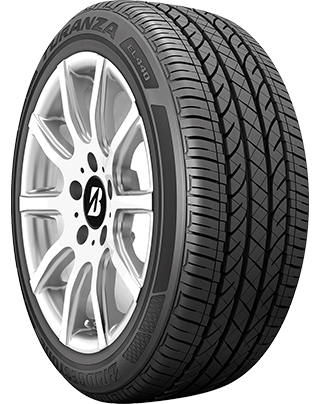
- No warranty
- All-Season
- Performance
 Turanza ER33
Turanza ER33
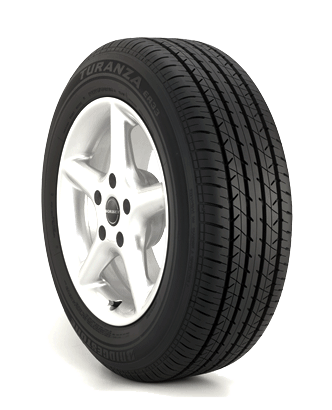
- Platinum Pact Limited Warranty
- Summer
- Performance
 Turanza QUIETTRACK
Turanza QUIETTRACK
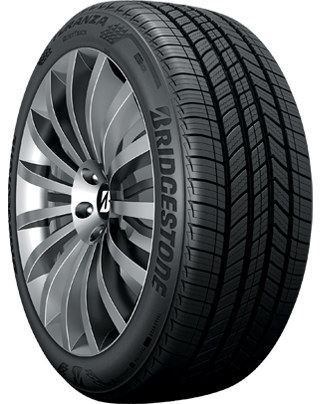
- No warranty
- All-Season
- Performance
 Blizzak LM005
Blizzak LM005
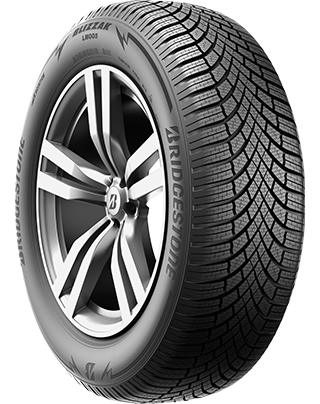
- Platinum Pact Limited Warranty
- Winter
- Winter
 Turanza T005A
Turanza T005A
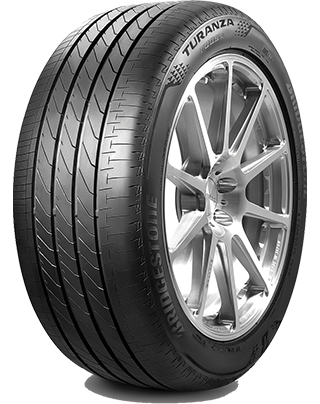
- No warranty
- Summer
- Performance
 Potenza RE050A
Potenza RE050A
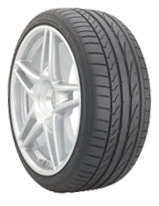
- Platinum Pact Limited Warranty
- Summer
- Performance
 WEATHERPEAK
WEATHERPEAK
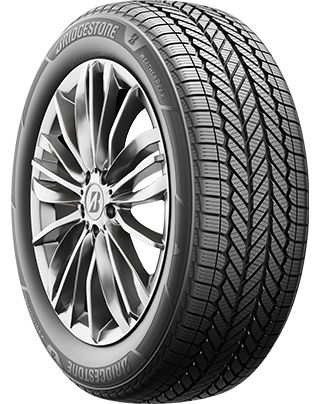
- Platinum Pact Limited Warranty
- All-Season
- Passenger Tires
 Potenza S001
Potenza S001
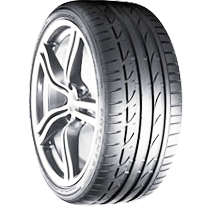
- Platinum Pact Limited Warranty
- Summer
- Performance
 Blizzak WS90
Blizzak WS90
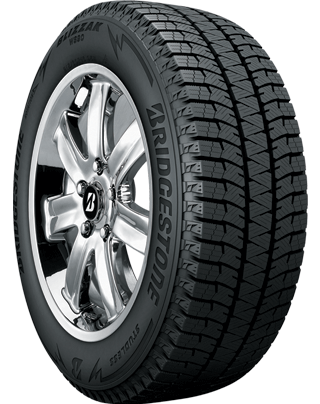
- No warranty
- Winter
- Winter
 DriveGuard Plus
DriveGuard Plus
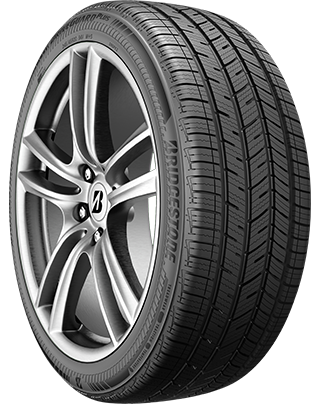
- Platinum Pact Limited Warranty
- All-Season
- Performance
 Turanza EL400-02
Turanza EL400-02
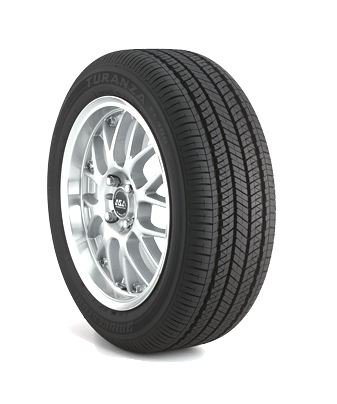
- No warranty
- All-Season
- Performance
 Turanza T005
Turanza T005
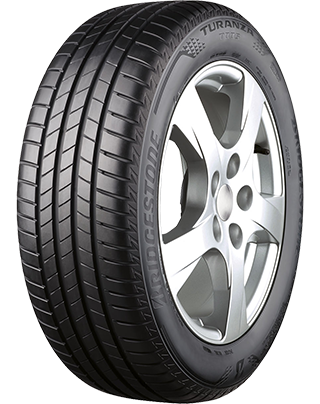
- No warranty
- Summer
- Performance
 Turanza EV
Turanza EV
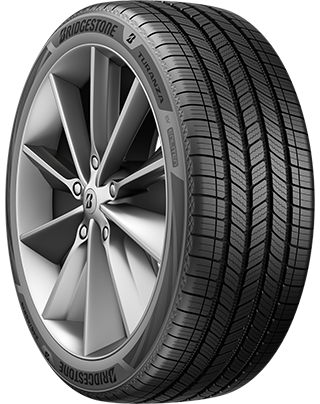
- Platinum Pact Limited Warranty
- All-Season
- Performance
 Turanza LS100
Turanza LS100
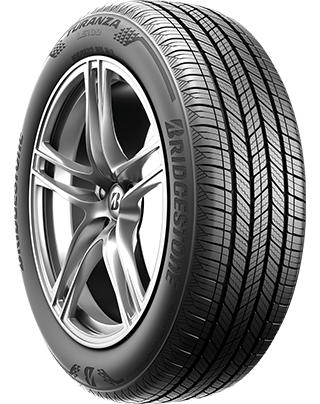
- Platinum Pact Limited Warranty
- All-Season
- Performance
 ALL SEASON
ALL SEASON

- No warranty
- All-Season
- Passenger Tires
 Firehawk AS V2
Firehawk AS V2
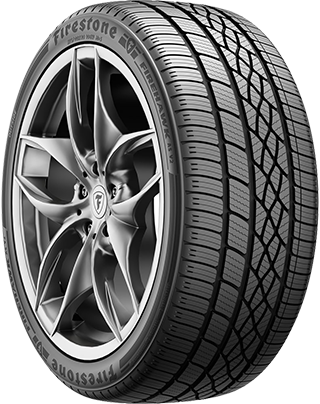
- No warranty
- All-Season
- Performance
 Firehawk Indy 500
Firehawk Indy 500
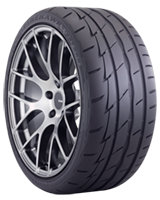
- Gold Pledge Limited Warranty
- Summer
- Performance
 WEATHERGRIP
WEATHERGRIP
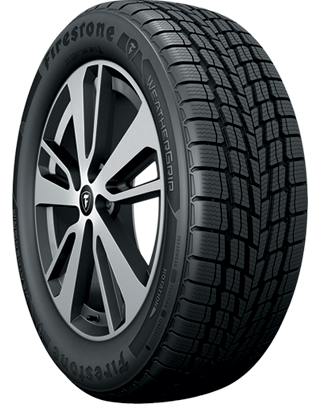
- No warranty
- All-Season
- Passenger Tires
 Affinity Touring S4 FF
Affinity Touring S4 FF
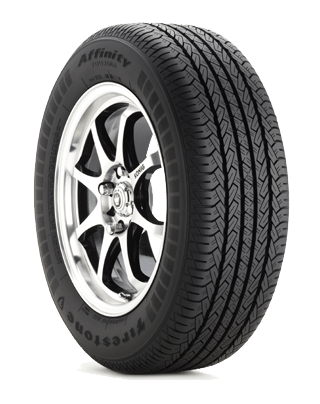
- Gold Pledge Limited Warranty
- All-Season
- Passenger Tires
 FT140
FT140
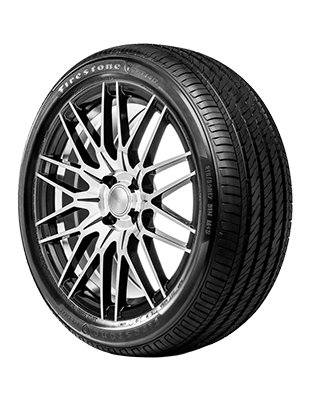
- No warranty
- All-Season
- Passenger Tires
 Winterforce 2
Winterforce 2
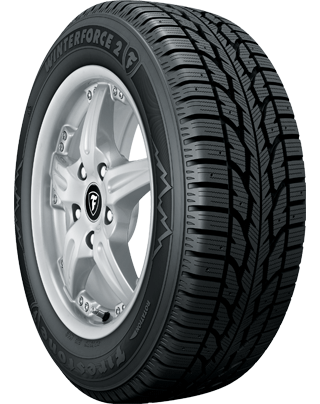
- No warranty
- Winter
- Winter

- No warranty
- All-Season
- Performance

- No warranty
- All-Season
- Passenger Tires

- No warranty
- All-Season
- Passenger Tires
 Extensa A/S II
Extensa A/S II

- No warranty
- All-Season
- Passenger Tires
 PROXES Sport
PROXES Sport
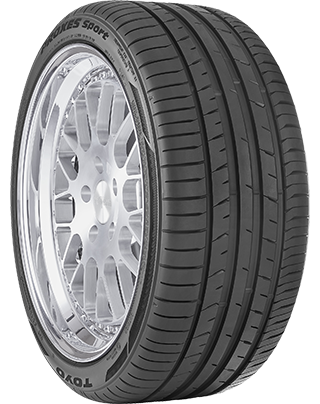
- No warranty
- Summer
- Performance
 PROXES Sport A/S
PROXES Sport A/S
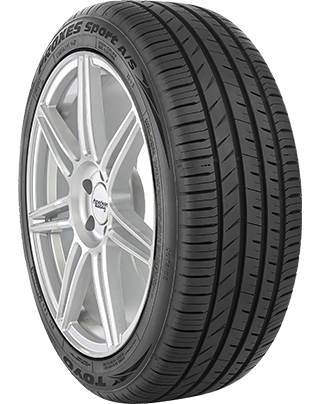
- No warranty
- All-Season
- Performance
About 2018 Toyota Camry Tires
Beyond the correct tire size, you also want to think about a couple of other things when getting new Toyota Camry tires like how and where you drive, and how much you want to spend. When evaluating your driving conditions, think about where you live (countryside vs. city vs. mountains) and the kind of unexpected weather you're likely to experience. It's not uncommon for drivers in states that experience all four seasons to buy more than one set of tires. one set for winter, one set for summer. Other drivers prefer to purchase one all-season set to limit trips to the tire shop and make sure their vehicle is prepared in the rain, sleet, snow, or sun!
Next, consider your driving style. If you're a diehard off-roader, you have very different tire needs than a highway commuter who doesn't leave the paved path. Browse Toyota Camry tires online or come to your nearby Firestone Complete Auto Care for help selecting the tire that's right for you.
Toyota Camry Installation and More
We sell tires, but we also service them and care for all the around-the-wheel components. We're your one-stop shop for tire installation, rotation, and ongoing maintenance! We make it easy to buy new 2018 Toyota Camry tires online and book an installation appointment at the same time.
2018 Toyota Camry Tire Q&A
-
Why does Toyota tire inflation matter? A small decrease in tire pressure can have a big impact on your driving. Maintaining proper tire pressure can help improve braking time, increase fuel economy, and boost tire lifespan.
-
Why are there numbers on the side of my Toyota Camry tires? Your tire sidewall gives you information about load carrying capacity, speed rating, treadwear, traction, and tire size. Talk to one of our tire technicians to learn how to read the numbers on your tire!
-
Can I check the tread depth on my Toyota tires at home? Stay on top of your tire tread depth to help avoid a dangerous drive. You can check tread depth with a penny. Hold the penny so that Abraham Lincoln is facing you, then place your penny into a tread groove upside down. If you can see the top of Abe’s head, your tread is shallow and it might be time for new Toyota Camry tires. Grab a penny. Hold the so that Abe Lincon's head is facing you and his hair is pointing toward the ground. Then, place the penny into a tread groove. If you can see the top of Abe’s head, your tread is shallow and it might be time for new Toyota Camry tires.
Repair Services for Your 2018 Toyota Camry
When to repair, when to replace? Click on a repair below to learn more about Toyota Camry repairs at Firestone Complete Auto Care.
2018 Toyota Camry Repair Information
Car repairs: for many drivers, that phrase is a dreadful one. We’re here to change that, though. At Firestone Complete Auto Care, we want to make car repair painless and hassle-free. When it’s time for 2018 Toyota Camry repair services, head to your nearest Firestone location and our technicians will take care of your Camry like it was their own. We’ll start by assessing what repairs may be needed, and we’ll provide you with a detailed explanation of what we recommend. If a repair isn't necessary, we won't recommend it.
How Much Are Toyota Camry Repairs?
The cost to repair your 2018 Toyota Camry depends on the type of repair, the cost of any replacement parts, how much labor the repair will take, and the state you live in. But regardless of where you’re located, check out our website for repair coupons and offers that could save you some cash.
A few different aspects can influence repair costs for your 2018 Toyota Camry, like
2018 Toyota Camry Auto Repair Questions
-
Do I still need scheduled maintenance even when nothing is wrong with my Toyota? Don’t neglect scheduled maintenance. Sure, you could skip out on a few recommended maintenance services, but you may pay the price later. Bring your vehicle to Firestone Complete Auto Care at recommended service intervals to address minor issues before they get out of hand and keep your car running newer, longer.
-
What does it mean to be 'in tune' with your car? You know your vehicle. You also know when something feels 'off' with your vehicle. Pay attention when things don't run like they used to and stop by for a Courtesy Check when you notice an unusual sign, smell, or sensation. We might be able to help you prevent Toyota Camry repairs!
-
Are the repairs you recommend for my Toyota actually needed? We won’t recommend a service or repair for your 2018 Toyota Camry unless we think it’s necessary to keep you safe. Want to know more about a specific recommended repair? Ask! We’re here to help.
Brake Repair for Your 2018 Toyota Camry
You might have a strong and reliable engine in your Toyota Camry. But if you can't stop it, then it's scrap metal. If you notice your brakes are squeaking or not working well, don’t wait! Unresponsive brakes make it tough to give the road your best. Plus, ignoring your brake problems can result in more damage and higher brake repair bills. Go to your local Firestone Complete Auto Care for 2018 Toyota Camry brake repairs. We offer a variety of brake services like brake pad/shoe replacement, rotor/drum resurfacing, brake fluid exchange/bleeding, and brake caliper and wheel cylinder installation.
Answers to Your Camry Brakes Questions
-
What is causing my Camry to shake when I brake? Feeling shaking or vibrating in your Camry as you brake might indicate a few different problems, including worn brake pads or rotors, loose suspension components, damaged brake calipers, or warped rotors. Book an appointment for a free brake inspection as soon as you notice a problem with your brakes.
-
What is the average lifespan of Camry brake pads? Brake pads typically last about 30,000 to 40,000 miles. However, driving conditions can affect this range. Sticking to highway driving and braking smoothly can help extend the life of your brake pads, while towing heavy loads or frequently riding your brakes can shorten it.
-
Does brake fluid leak when the car is off? Because your Camry brake system is a closed hydraulic system, it should not leak brake fluid. However, if components in your brake system have worn out or been damaged, it might cause brake fluid to leak.
Repairing Your Toyota Camry Drivetrain
Drivetrains for front, rear, and all-wheel-drive and 4WD vehicles are not all the same. You don't want to go to any random shop for drivetrain repair. You want to go to Firestone Complete Auto Care. We can help repair all of your 2018 Toyota Camry drivetrain components Your Camry might need driveshaft repair if you notice heavy vibrations in your floorboards, clunks when shifting, resistance when turning, or vibration as your vehicle accelerates.
2018 Toyota Camry Drivetrain Q&A
-
What are the symptoms of a damaged Toyota drivetrain system? Hear noises toward the back of your Toyota Camry? See fluid leaking? Having issues turning? These could all be signs of drivetrain damage you don't want to ignore. Take action quickly to catch repairs or replacements before something more severe happens.
-
What causes a Camry’s malfunction indicator light (MIL) to illuminate? The malfunction indicator light — also known as the check engine light — on your Camry can illuminate for a variety of reasons, including engine issues, electrical problems, damaged sensors, transmission problems, misfires, and faulty connections.
-
How serious is a drivetrain malfunction in my Camry? If your Camry has a drivetrain malfunction, don't wait. Get it checked out by a professional mechanic. Identifying the underlying cause and performing the appropriate repairs right away can help prevent further damage and avoid unsafe driving conditions.
Wheel Alignment for 2018 Toyota Camry
Alignment services involve precise adjustments to your Toyota Camry’s suspension system, which connects the wheels with the rest of the vehicle. During the service, your tire angles are adjusted according to measurements recommended by Toyota. Why? So that your tires can make contact with the road at the best possible angle. Before we adjust the alignment of your 2018 Toyota Camry, we’ll start by checking the current alignment angles. After that, we can adjust your wheel alignment angles until they match Toyota’s recommended measurements.
Answers to Toyota Camry Alignment Questions
-
How can I avoid knocking my Toyota Camry out of alignment? Hitting a pothole or curb can alter your wheel alignment. So can general wear and tear over time.
-
How often does your Camry need a wheel alignment? Typically, your alignment should be checked every 6,000 miles or 6 months, whichever comes first. Double-check your Camry owner’s manual for Toyota's exact recommended schedule.
-
Do you need to get your Camry wheels aligned? You likely aren't required to get an alignment when you put new tires on your Camry, but it's a super smart idea! An alignment can help ensure optimal tire wear, fuel efficiency, and handling. Still, you should reference your Camry owner’s manual for what’s recommended.
Engine Repairs for Your 2018 Toyota Camry
When your Toyota Camry engine needs repairs, our technicians will provide you with a thorough explanation beforehand. We make recommendations, but you make the final decision. If a repair can wait, we'll let you know. If it's necessary for your safety, we'll make sure you understand that, too. We want to give you all the details you need to make an informed decision about your engine repairs. Turn to Firestone Complete Auto Care for your 2018 Camry engine repairs and you can drive easy knowing that we use Toyota-approved parts and fluids — cambelt, valve guide seal, ignition coil, or other parts.
Questions About 2018 Toyota Camry Engines
-
Why does my Camry’s check engine light come on when I start it? Generally, your check engine light turning on upon ignition is not a bad thing. It’s just your Camry firing up its circuits. The light should turn off in a bit, but come see us if it doesn't.
-
Are Toyota Camry engine noises bad? Strange engine sounds can be a sign something’s off in your Toyota Camry. Knocking or tapping could be a symptom of low oil. A high-pitched whistle could signal an intake leak or misaligned belt. Squealing can be traced back to a loose fan belt, and grinding might be a sign of brake problems rather than engine issues.
-
Are you unknowingly damaging your Toyota Camry engine? Some driving habits are not so great for your engine. These include driving on a near-empty gas tank, flooring the gas pedal while the car is in Park, or accelerating too quickly, too soon. Protect your engine’s performance and efficiency by distancing yourself from these habits.
2018 Toyota Camry Tire Repair
Firestone Complete Auto Care is here for you when your 2018 Toyota Camry needs flat tire repair or inspection. There’s a chance your tire could be plugged and patched (rather than replaced). Our technicians can inspect your tire and let you know if it is safe to repair. To start, we’ll consider the location of tire damage, the type of issue, the size and scope of the damage, and the amount of wear on your tires.
If your 2018 Toyota Camry tire puncture can be repaired, we’ll get to work on the steps to fix it: (1) Remove the tire from the wheel for inspection and repair, (2) fill in the area that’s been punctured to prevent damage from moisture, and (3) secure and seal the inner tire liner to ensure the tire is airtight.
Toyota Camry Tire Repair Questions
-
How soon should I have my flat tire repaired? Driving on a flat tire is not a good idea. Your Camry engine will keep running with a flat tire, but you could damage your wheel by continuing to drive on a flat.
-
Can I use an emergency/temporary sealant to fix my Toyota's flat tire? A temporary sealant may be able to help you get to a repair location safely. But temporary or emergency sealants could possibly damage TPMS sensors, and in some cases may even void the warranty on your Bridgestone or Firestone tires. If your tire needs extensive repair, sealant can add time and labor costs to the process.
-
What is causing the tires on my Camry to keep losing air? Tire punctures, damaged wheels, and leaking valve stems are possible reasons for your Camry tires continuously losing air.
Maintenance for Your 2018 Toyota Camry
Take care of your Toyota Camry and it'll take care of you. With the right maintenance at the right time, your Camry has a good chance of hitting 200,000 miles or more.
2018 Toyota Camry Maintenance Schedule
What is the manufacturer recommended maintenance schedule for a 2018 Toyota Camry? Find maintenance info for your vehicle.
2018 Toyota Camry Maintenance Information
There's no need to guess when it's time to get Camry maintenance, and no need to wait until something goes wrong. Just follow your 2018 Toyota Camry maintenance schedule! This recommended maintenance schedule is written by the auto manufacturer, Toyota themselves. Driving conditions, climate variations, and other variables can affect which scheduled maintenance services you’ll need; however, recommended maintenance usually includes services like fluid exchanges, filter changes, new brake pads, oil changes, and tire rotations. Scheduling routine service appointments is one of the best ways to help extend your Camry's life, increase your vehicle safety, and help you avoid expensive repairs caused by 2018 Toyota Camry problems later.
Essential Maintenance to Keep Your 2018 Toyota Camry Running Newer, Longer
Bring your 2018 Toyota Camry to Firestone Complete Auto Care for factory-recommended maintenance services and an expert technician will begin by performing a Courtesy Check. The Courtesy Check helps us see what we’re working with under the hood, and allows us to alert you to any potential problems before they worsen. During a Courtesy Check, we’ll always check your battery, then we’ll move on to inspect your Camry’s head and tail lights, tires, fluid levels, alignment, and windshield wipers.
Firestone Complete Auto Care is your spot for 2018 Toyota Camry maintenance. Don’t wait until something goes wrong with your car. Visit your nearest location for proactive maintenance today.
2018 Toyota Camry Maintenance Q&A
-
When should I have Toyota Camry alignment checked? You know your Toyota Camry better than anyone else, so you’ll know if something doesn’t feel right while driving. Have your alignment checked (and adjusted if necessary) as soon as you notice a pulling steering wheel to prevent suspension damage or uneven tire wear.
-
When should I switch my Toyota Camry to high mileage oil? Got 75,000+ miles on the odometer? Consider high mileage motor oil. High mileage oil is formulated to address the specific problems encountered by high mileage vehicles, or those with more than 75,000 miles. It can help reduce oil consumption, smoke, and emissions from older Toyota Camry engines.
-
Can I ignore dashboard lights on my Toyota? Because there might be a problem under the hood. Those warning lights are there for a reason! As soon as you notice that one’s illuminated, take your Toyota Camry to Firestone Complete Auto Care so you can address any small problems long before they worsen.
Battery Size & Replacement for 2018 Toyota Camry
Need more info about Toyota Camry batteries?
| Battery | Engine | Warranty | Cold Cranking Amps | |
|---|---|---|---|---|
| 91-1 | L4/2.5L | Replacement 24 months | Performance months | 615 |
| 91-1 | L4/2.5L | Replacement 24 months | Performance months | 615 |
| 48H6 | L4/2.5L | Replacement 36 months | Performance months | 730 |
| 48H6 | L4/2.5L | Replacement 36 months | Performance months | 730 |
| H5-AGM | L4/2.5L | Replacement 36 months | Performance months | 680 |
| H5-AGM | L4/2.5L | Replacement 36 months | Performance months | 680 |
| 91-1 | V6/3.5L | Replacement 24 months | Performance months | 615 |
| 91-1 | V6/3.5L | Replacement 24 months | Performance months | 615 |
| 48H6 | V6/3.5L | Replacement 36 months | Performance months | 730 |
| 48H6 | V6/3.5L | Replacement 36 months | Performance months | 730 |
| H6-AGM | V6/3.5L | Replacement 36 months | Performance months | 760 |
| H6-AGM | V6/3.5L | Replacement 36 months | Performance months | 760 |
| 91-1 | L4/2.5L | Replacement 24 months | Performance months | 615 |
| 91-1 | L4/2.5L | Replacement 24 months | Performance months | 615 |
| 48H6 | L4/2.5L | Replacement 36 months | Performance months | 730 |
| 48H6 | L4/2.5L | Replacement 36 months | Performance months | 730 |
| H5-AGM | L4/2.5L | Replacement 36 months | Performance months | 680 |
| H5-AGM | L4/2.5L | Replacement 36 months | Performance months | 680 |
| 91-1 | V6/3.5L | Replacement 24 months | Performance months | 615 |
| 91-1 | V6/3.5L | Replacement 24 months | Performance months | 615 |
| 48H6 | V6/3.5L | Replacement 36 months | Performance months | 730 |
| 48H6 | V6/3.5L | Replacement 36 months | Performance months | 730 |
| H6-AGM | V6/3.5L | Replacement 36 months | Performance months | 760 |
| H6-AGM | V6/3.5L | Replacement 36 months | Performance months | 760 |
| 91-1 | V6/3.5L | Replacement 24 months | Performance months | 615 |
| 91-1 | V6/3.5L | Replacement 24 months | Performance months | 615 |
| 48H6 | V6/3.5L | Replacement 36 months | Performance months | 730 |
| 48H6 | V6/3.5L | Replacement 36 months | Performance months | 730 |
| H6-AGM | V6/3.5L | Replacement 36 months | Performance months | 760 |
| H6-AGM | V6/3.5L | Replacement 36 months | Performance months | 760 |
| 91-1 | L4/2.5L | Replacement 24 months | Performance months | 615 |
| 91-1 | L4/2.5L | Replacement 24 months | Performance months | 615 |
| 48H6 | L4/2.5L | Replacement 36 months | Performance months | 730 |
| 48H6 | L4/2.5L | Replacement 36 months | Performance months | 730 |
| H5-AGM | L4/2.5L | Replacement 36 months | Performance months | 680 |
| H5-AGM | L4/2.5L | Replacement 36 months | Performance months | 680 |
2018 Toyota Camry Car Batteries
Generally, car batteries last from three to five years. You want to replace your 2018 Toyota Camry battery before it fails and leaves you stranded. Watch for signs that your current battery is getting too old or too weak. A slow engine crank, a blinking battery or check engine light, swollen battery case, corroded battery posts, or weak lights can all be signs that your battery is on its last leg.
Or, you can get a complimentary battery check at your nearest Firestone Complete Auto Care. Stop by for a free battery test and, if needed, get your Toyota Camry a replacement battery. Car batteries are only one of our many strong suits. Our technicians are familiar with Toyota-specific recommendations for Camry car batteries’ reserve capacities and cold cranking amps. Get help figuring out the battery size that matches your vehicle, and schedule a weekday or weekend battery replacement service for your car.
Answers to Your Toyota Camry Car Battery Questions
-
Why won't my Toyota Camry battery stay charged? A battery is in its final hour when it will no longer hold a charge. The battery may be too old. Or, you may have been leaving your car doors ajar and the cabin light at night. Stop by for a complimentary battery check at your favorite Firestone Complete Auto Care and get a handle on your car battery’s health.
-
How long can I expect my car battery to last? The typical 12-volt car battery may last three to five years, depending on the type of battery, the driving conditions, and how well the battery is maintained.
-
What is the white, crusty stuff around my Camry’s battery post? The white, flaky stuff that can build up around your Camry’s battery terminals is known as corrosion. Acid leaking from your vehicle’s battery post can have a chemical reaction with the air, leading to an accumulation of the white, powdery substance over time. Corrosion can affect the flow of electricity between your battery and the electrical system in your Camry, possibly causing issues with electrical performance and starting. If left unaddressed for long enough, it may even cause your battery to prematurely fail.
Oil Changes for 2018 Toyota Camry
Your 2018 Camry’s oil should be changed according to Toyota’s recommended oil change intervals. Your Camry may need an oil change right away if your check engine/oil change light is on, you hear knock knock knock coming from the engine, smell oil inside the car, or see an excess amount of vehicle exhaust. You might need an oil change more frequently than what’s recommended by Toyota if you regularly haul heavy loads, drive in dusty terrain, adventure off-road, or go long distances at low speeds.
Whether you need high mileage oil, synthetic oil, or conventional oil, you'll find the right 2018 Toyota Camry motor oil at Firestone Complete Auto Care. Consult Toyota's recommendations to select the right 2018 Camry oil and talk with a teammate to learn more about our oil options: Quaker State® Advanced Durability™ conventional oil, Pennzoil® High Mileage Vehicle® motor oil, Pennzoil Platinum® Full Synthetic motor oil with PurePlus™ Technology, and Shell Rotella® heavy-duty engine oil. During your oil change service, one of our techs will change your Camry’s oil, replace and recycle your used oil and oil filter, check all of your other filters, top-off essential fluids, and visually inspect the rest of the vehicle. Make an appointment for an oil change service today and let the oil experts take care of your Camry's engine.
2018 Toyota Camry Oil Change Q&A
-
What does it mean if my Toyota Camry oil light comes on? Your Toyota Camry oil change reminder light might illuminate if it’s been too long since your last oil change. On the other hand, the oil pressure light might illuminate due to a clogged oil filter, a faulty oil pressure sensor, low engine oil levels, or a malfunctioning oil pump.
-
Can I change my Toyota oil on my own? Changing engine oil at home isn’t as simple as it’s made out to be. You’ll have to figure out how to properly dispose of the oil and buy special tools. Having your oil changed professionally can not only reduce the risk of something going wrong during the service, but it’ll also help your car perform smoothly down the road.
-
Why is my Toyota exhaust smoke gray or blue? You could have an oil leak and have a case of burning oil. Looks like it’s time for a professional to take a look. The leak could be the result of worn valve seals, fried piston rings, or old cylinder walls.
2018 Toyota Camry Engine Tune-Ups & Maintenance
Regular engine tune-ups can optimize your Camry’s power on the road. The Firestone Complete Auto Care location in your community offers several Toyota Camry engine tune-up services. The standard Firestone Tune-Up is one service option. It includes a complete visual inspection of engine components, installation of new spark plugs, and a lifetime warranty on parts*. A second service option replaces the air and fuel filter in your Camry. The third tune-up option is a fuel system cleaning service, which is a three-step process that removes varnish, dirt, and carbon deposits on your Camry's fuel injectors, throttle body, and throttle plate. The result? Restored fuel system performance. Keep in mind that your Camry's mileage and maintenance history can uniquely impact its tune-up needs. Talk to a technician about your driving style, mileage, and service history to learn more about your vehicle's specific needs.
*Ask a Firestone Complete Auto Care teammate about full terms and conditions for warranties.
Common Engine Tune-Up Q&A for 2018 Toyota Camry
-
Will it hurt my Toyota Camry to drive with old spark plugs? Replace spark plugs on time or about every 30,000 miles or so. Without the spark of electricity created by spark plugs, your engine doesn’t have the combustion it needs to start — which could leave you stranded on the road. Always replace your spark plugs on time based on Toyota’s recommendations.
-
What do I do if I see a pool of liquid under my Toyota Camry? Puddles could indicate that your vehicle is leaking coolant, oil, or brake fluid. Ignoring these leaks can lead to permanent engine damage, so address these symptoms ASAP with a tune-up service.
-
How frequently do the fuel injectors in my Toyota Camry need to be cleaned? The cleaning schedule for vehicle fuel injectors varies depending on your driving conditions and the type of fuel you use. Some manufacturers suggest cleaning your fuel system as part of routine maintenance, while others will recommend it on an as-needed basis if you’re experiencing poor performance. Reference your Toyota owner’s manual for exact guidelines.
Suspension Service & Repair for 2018 Toyota Camry
When you first bought your 2018 Toyota Camry, you probably enjoyed a smooth and steady ride. But these days, things are starting to feel a bit rough. Maybe your Camry bounces, sways to one side, or makes an unusual noise when going over a speed bump. As soon as you notice that something’s “off” with your 2018 Toyota Camry, bring it in for steering and suspension repairs. We’ll get to the source of your car problems and, if your car needs steering and suspension repairs, we’ll go over the services you need and how much they will cost before we do any work.
2018 Toyota Camry Steering & Suspension Questions
-
Why is my Toyota Camry bouncing excessively? Damaged struts or shocks can't dampen road bumps properly, causing your vehicle to feel like a trampoline after each dip or bump.
-
What can cause the front end of my Camry to dip forward when I apply the brakes? As you brake, the forward momentum of your Camry combined with its weight sends a ton of force to its front end. A damaged or worn suspension system can cause the front end to compress and dip even further.
-
Does treadwear and tire pressure impact my Camry's steering and suspension? Keeping your tires properly inflated can help reduce strain on the suspension, and also help you notice when you need new tires. A tire that doesn't have an adequate amount of tread can't grip the road or function as well as the manufacturer intended.
A/C Service for Your 2018 Toyota Camry
Our trained technicians will do what they can to solve your 2018 Toyota Camry A/C problems. During an A/C performance check, we'll determine the condition of your 2018 Toyota Camry A/C system to determine whether repair work is needed. This check includes a visual inspection, performance test, and pressure and leak test.
Let's say we repair your 2018 Toyota Camry A/C system. We will also perform an A/C evacuation and recharge. To do this, one of our technicians will remove the refrigerant in your A/C system (if there is even any left to remove). Then, they’ll perform an evacuation (also known as a discharge) on the entire system per Toyota guidelines. To finish, we’ll add new refrigerant to recharge the A/C system.
2018 Toyota Camry A/C System FAQs
-
What’s making my Camry A/C put out warm air? Maybe your A/C starts cool but then gets warm. Or maybe it never gets cold in the first place. Either way, your A/C troubles could be traced back to a clogged expansion valve, faulty compressor clutch, blown fuse, or leak.
-
What can cause an A/C system leak? To put it simply, age and moisture are some of the main causes of leaks in your A/C. Over time, rubber gaskets and seals can wear out, which pushes much-needed refrigerant out of your Camry’s A/C system — and lets outside moisture get in, which can take a toll on internal A/C components.
-
Why won’t my Camry’s A/C cool the vehicle when the car is stopped? A problem with one or more of your air conditioning or electrical system components could cause the A/C to only work when your Camry is moving. You may be low on refrigerant, or the cooling fan could be faulty.
2018 Toyota Camry Transmission Service & Repairs
The transmission delivers power from the motor to your wheels so that you can drive at your desired speed. Since the transmission has to translate the precise amount of power for your desired amount of speed, even the smallest transmission problems should be addressed right away. 2018 Toyota Camry transmission problems can show up as shifting delays, jumping or grinding during acceleration, the car shaking on the road, or a burning smell or whistling sounds coming from under the hood. If you ignore Toyota Camry transmission issues you could see your fuel economy decrease or find that you can't drive your Camry at all. Our technicians know how to service your 2018 Camry up to Toyota-recommended standards. If you think there’s something wrong with your Camry’s transmission, schedule an appointment at your local Firestone Complete Auto Care to help keep your engine running at peak performance.
2018 Toyota Camry Transmission Q&A
-
When should I have my Camry's transmission fluid checked or exchanged? Maintaining your Toyota Camry transmission fluid is one of the best ways to maintain your transmission's health. A general rule of thumb is to have your transmission fluid checked and changed about every 30,000 to 60,000 miles, but that timeline can change if you're hard on your Toyota. Leaks or low transmission fluid are easy to spot and affordable to repair.
-
Can transmission fluid leak from my Toyota Camry? Yes. Toyota Camry transmission fluid can leak over time and potentially cause transmission issues. Worn or damaged seals, a loose or damaged transmission pan, a cracked transmission housing, faulty transmission cooler lines, or an overfilled transmission could cause transmission fluid leaks.
-
Can I still drive my Toyota Camry if it has a transmission fluid leak? Driving with a transmission fluid leak is not recommended. Transmission fluid is essential to the proper operation of the transmission system, and a leak can cause serious problems, including reduced performance, overheating, and potentially transmission failure.
Vehicle Inspection for 2018 Toyota Camry
When you bring your vehicle to Firestone Complete Auto Care for any service, we’ll automatically do a multi-point Courtesy Check. First, a technician will pop the hood on your Toyota Camry and test the battery to determine how much charge remains. After we’ve inspected your Toyota Camry’s battery, we’ll visually inspect your lights, windshield wipers, filters, fluid levels, belts, hoses, tires, and alignment.
Every service performed at your nearest Firestone Complete Auto Care will include a Courtesy Check, but we also offer an in-depth Complete Vehicle Inspection for your 2018 Toyota Camry. During a Complete Vehicle Inspection, we’ll visually check everything that’s on the list for a Courtesy Check. Additionally, we’ll perform a hands-on examination of your exhaust system, steering and suspension, and brakes. This inspection is aimed at informing you of any major problems that could need immediate attention in order to prevent further damage.
Depending on your location, your local Firestone Complete Auto Care may be able to perform state-mandated inspections or safety tests on your vehicle. Specific requirements for these types of inspections vary by state.
2018 Toyota Camry Vehicle Inspection Q and A
-
How do I know if I should have an inspection on my Toyota Camry? If you’ve noticed something that doesn’t feel quite right in your car lately, a Courtesy Check could give you peace of mind. We can help you get to the bottom of strange engine noises, a jerky steering wheel, or an engine that's hard to start.
-
Can you fix my 2018 Toyota Camry so it will pass a state inspection test? There's a good chance we can. Stop by for a full system inspection and we'll get to the root of the issue.
-
When should I get a complete vehicle inspection for my Toyota Camry? The best time to have a complete vehicle inspection done on your Toyota Camry is when you notice something is off but you can’t locate the issue yourself. Schedule an inspection if you experience any unusual symptoms, such as unfamiliar dashboard indicators, strange engine noises, or steering changes. An inspection can be especially beneficial before a road trip for the simple peace of mind. You can feel confident in your adventure!
2018 Toyota Camry Radiator Repair & Service
Regular, proactive service on the radiator in your 2018 Toyota Camry is crucial to keep your engine in the best possible shape for years to come. In fact, Toyota recommends replacing coolant/antifreeze at specific intervals, but it’s also wise to keep an eye out for signs of a failing radiator. You could be on the verge of a radiator-induced engine breakdown if you see coolant leaks under your car, high engine temperatures, or a dashboard light that indicates low coolant.
If you bring your vehicle to Firestone Complete Auto Care, we start with a comprehensive inspection of your Toyota Camry’s cooling system. We then do a machine-powered radiator exchange, replenish flushed chemicals, sealants, and lubricants, and then pressure check for leaks. When it comes to radiator service and repair, we’re here to give your 2018 Toyota Camry the top-notch service it needs.
Questions About Toyota Camry Radiators
-
What does an illuminated coolant temperature light mean for my Toyota? Pay attention to the temperature gauge and lights on your dashboard. If a low coolant warning light comes on or your dashboard temperature gauge keeps rising, it’s likely that your engine is about to overheat (and could leave you stranded on the road). Wait for the engine to cool down, then have your coolant system checked immediately at your nearest Firestone Complete Auto Care.
-
Why is my Camry overheating? Your Toyota Camry engine could overheat due to low coolant, a clogged radiator, a damaged water pump, a malfunctioning cooling fan, or a faulty thermostat.
-
Why does the radiator in my Camry sound like it’s rumbling or boiling? Your Camry’s cooling system could contain air pockets or your radiator might be clogged. Another possibility is a faulty radiator cap, which is an easy fix!